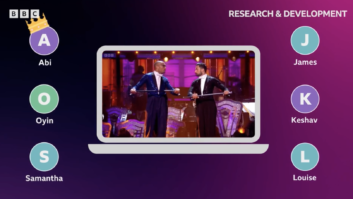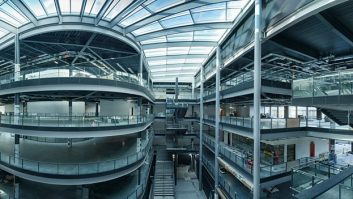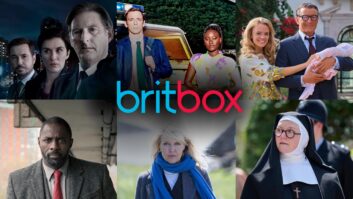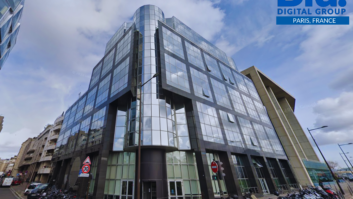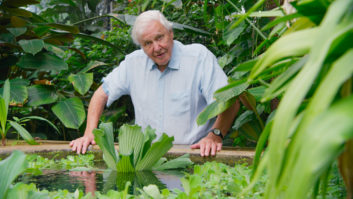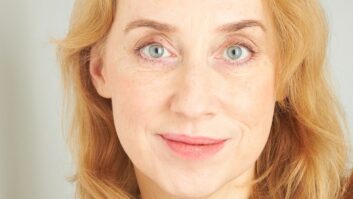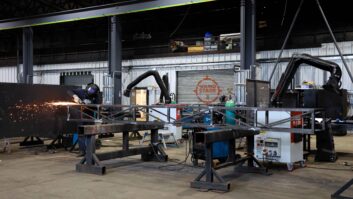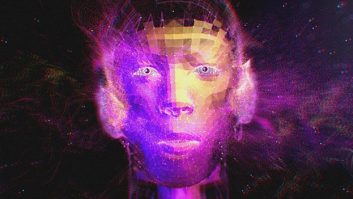
The BBC has released details of its coverage of the upcoming UK General Election, with an emphasis on young voters and digital technology, and with a closer focus on party policy. BBC services on radio, television and social media will all reflect these priorities at network, regional and local level, the broadcasters promises.
On the night of 7 May, and throughout the day on 8 May, the BBC will offer results and analysis, fronted by well-known personalities. However, only four out of five of those listed by the corporation as the “most trusted faces in broadcasting”, are women meaning political coverage on election night is – as so often – male-dominated.
Free Speech, the debate programme for young people, has returned to BBC Three. Viewers are able to interact via social media with the panel and studio audience in a series of debates involving party leaders. Labour leader Ed Miliband was grilled in the first show, though last night David Cameron appeared to be ‘running scared yet again from a televised questioning, and was absent from Free Speech. In his place were Tory politician Sam Gyimah, journalists Toby Young and Ian Birrell, and businesswoman Luisa Zissman, (as well as The Apprentice and Celebrity Big Brother contestant) who contributed such insightful comments as “I’m not a feminist, but I’m for women’s rights. Obviously.”
In addition, ‘Generation 2015’, a sample of 200 young voters from around the UK, will appear on a range of BBC News outlets to give their take on the issues which matter to them. Young voters can use #inmyshoes to tell the politicians what they are thinking on social media.
“The BBC is the most trusted source of news in the UK,” said James Harding, director of BBC news and current affairs. “More than ever in the noisy weeks ahead the BBC should be the place people come for the news – news that is reliable and insightful, independent and impartial. The place for accurate reporting, thorough questioning and expert analysis. The place, too, that people come for news that’s moving with the times. This will be election coverage for the internet age.”
The BBC aims to reach the widest possible audience with live political news and analysis on mobile, tablet, app, social media and desktop. Features of the election homepage include a Politics Live page which will report the campaign, in text, images, video, audio, graphics and tweets, along with live streams of all the relevant BBC broadcasts, programmes and live events; and shareable guides with a poll tracker and maps, a manifesto guide, an interactive ‘coalition builder’ and explanations in text, graphics and video of key issues and policies
throughout the campaign.
BBC One will transmit a number of key leader interviews, fronted by Newsnight’s Evan Davis, all in peak time. For the first time, these will feature the UKIP leader Nigel Farage and the SNP’s Nicola Sturgeon, as well as David Cameron, Ed Miliband and Nick Clegg.
TV coverage will also go on the road, with BBC Breakfast hosting ‘Pop-up Sofa’ sessions around the UK offering a seat to voters and politicians to talk about current issues. Breakfast presenter Steph McGovern will also visit businesses around the country.
Victoria Derbyshire’s new programme launching on 7 April and broadcast simultaneously on BBC Two, will feature interviews and debates from around the UK, and Newsnight on BBC Two is moving out of Westminster with This House, films featuring three families across Britain as they talk politics over dinner.
The token gimmicky section is Emily Maitlis’ Election Marathon, in which the newsreader jogs through election battlegrounds while talking to leading political figures and locals.
Both the local and worldwide territories are taken into consideration: every constituency in England, Wales, Scotland and Northern Ireland will have its own online page featuring local stories and updates, as well as a constituency profile and full candidate information. The BBC World Service will broadcast its own overnight election special.
